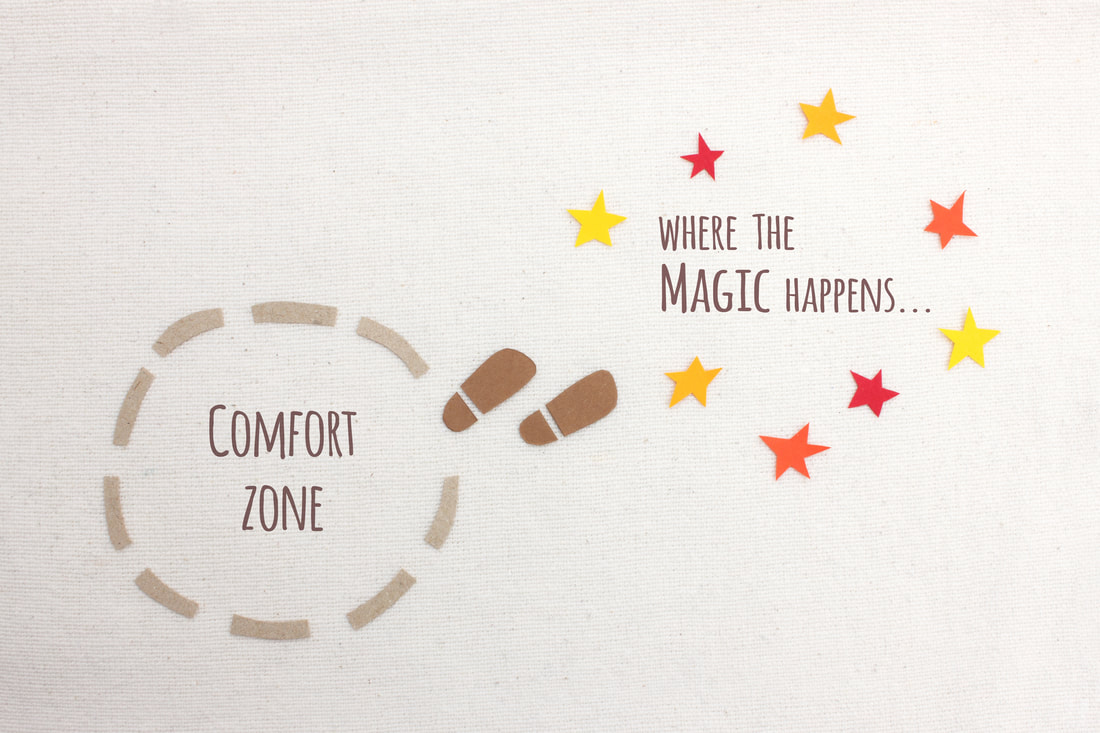This may seem obvious however there is a bit more too it. You get the best results by moving just outside of your comfort zone. While you will never improve by staying inside your comfort zone, being forced to move too far out of it can also be detrimental. For example, if you were forced to give an important presentation to a large audience with little experience and feeling terrified, the chances are it will go badly. And this will just make you dread public speaking even more.
Public speaking courses and clubs such as Toastmasters provide the ideal environment for becoming a more confident speaker. I have witnessed hundreds of people transform their public speaking abilities and confidence this way. Even without an educational component people tend to improve dramatically by just getting up and speaking on a regular basis.
Sometimes the results can seem surprising even to me. One day a course participant might struggle through a presentation, but the next week they make a huge improvement.
This is how I think the magic works:
Courses provide a low stakes/low risk environment
To use Eduardo’s terminology, courses and clubs provide an ideal ‘learning zone’ to practice skills because your performance doesn’t matter. If you perform well you will get positive feedback which will make you feel great, but nothing bad will happen if it doesn’t go so well.
You will probably get some encouraging feedback on the bits you did well and helpful suggestions for improvement. Although you may find the experience stressful, it is much less stressful than practicing in the ‘real world’ and therefore your stress levels are more likely to improve your performance.
Everyone else is rooting for you
Everyone on a course is there for the same reason – to manage nerves and improve skills. Other participants understand how you feel and want you to do well. In every course I have led, participants are highly supportive of each other and this is a huge factor in the success of the course. I often reflect that this is the one factor I cannot control and yet I have never seen a group that doesn’t bond! Outside of a course you may face difficult or even hostile audiences but this should never happen at a public speaking course. The feedback you get should be constructive and should build your confidence, not destroy it.
You are free to move at your own pace
While most courses follow a set programme, there is usually scope for you to progress at your own speed if you are not comfortable. I always ensure that exercises can be modified for anyone who needs to take things more slowly. At Toastmasters it is very easy to take things at your own pace. Some people like to move through the educational programme quickly, while others choose to take longer.
A good public speaking coach or mentor is able to get a bit more out of you
I started this article by saying that to improve your public speaking skills you need to move just outside of your comfort zone. The problem is that your ‘inner critic’ – that little voice in your head that says you are no good enough and are bound to fail – will fight very hard to keep you firmly within your comfort zone. Tara Mohr, in her book Playing Big, explains that the entire job of your inner critic is to prevent you from taking risks. This may keep you ‘safe’ but is not conducive to learning.
A good coach or mentor will recognise just how hard you can be ‘pushed’ without destroying your confidence and can often get you doing things you did not think you were capable of. For example, many of my course participants are very wedded to reading notes and are often surprised to find that they can tell a great story with limited use of notes.
In summary, the combination of a low stakes and supportive environment and a good coach or mentor who can help nudge you outside of your comfort zone frequently produces ‘miraculous’ results. Provided you are prepared to put in the work and trust in the process, you won’t regret taking a step to manage your nerves and improve your public speaking skills.

